At long last, EURO 2020/21 Tourney to determine European football supremacy finally gets underway amid uncertainty of global pandemic
Read this article for free:
or
Already have an account? Log in here »
To continue reading, please subscribe:
Monthly Digital Subscription
$0 for the first 4 weeks*
- Enjoy unlimited reading on winnipegfreepress.com
- Read the E-Edition, our digital replica newspaper
- Access News Break, our award-winning app
- Play interactive puzzles
*No charge for 4 weeks then price increases to the regular rate of $19.00 plus GST every four weeks. Offer available to new and qualified returning subscribers only. Cancel any time.
Monthly Digital Subscription
$4.75/week*
- Enjoy unlimited reading on winnipegfreepress.com
- Read the E-Edition, our digital replica newspaper
- Access News Break, our award-winning app
- Play interactive puzzles
*Billed as $19 plus GST every four weeks. Cancel any time.
To continue reading, please subscribe:
Add Free Press access to your Brandon Sun subscription for only an additional
$1 for the first 4 weeks*
*Your next subscription payment will increase by $1.00 and you will be charged $16.99 plus GST for four weeks. After four weeks, your payment will increase to $23.99 plus GST every four weeks.
Read unlimited articles for free today:
or
Already have an account? Log in here »
Hey there, time traveller!
This article was published 10/06/2021 (1642 days ago), so information in it may no longer be current.
It sometimes seems as though time stopped in 2020.
One day we were going about our lives, whatever that looked like, and the next, without knowing it, we woke up to an interminable Groundhog Day, where suddenly “coronavirus,” “physical distancing” and “lockdown” were added to the vernacular.
Yes, it may have been 2021 for nearly six months now, but this year and the last one have rather coalesced into an endless, monotonous period, the clock’s hour, minute and seconds hands spinning dizzily like a compass in search of its bearings.
Well, it’s time to find true north.
This summer, as COVID-19 case counts (hopefully) continue to decline and the rates of vaccination (at least in wealthy countries) increase, the world, and the world of sports in particular, will embark on a great game of catch-up.
Fans are already flocking to hockey and basketball playoff games; Wimbledon will go ahead with spectators in attendance; the Tokyo Olympics, even if it shouldn’t (Japan is experiencing a pandemic surge), will light the flame on July 23.
And the European football championship, scheduled to have begun on June 12, 2020, will finally kick off.
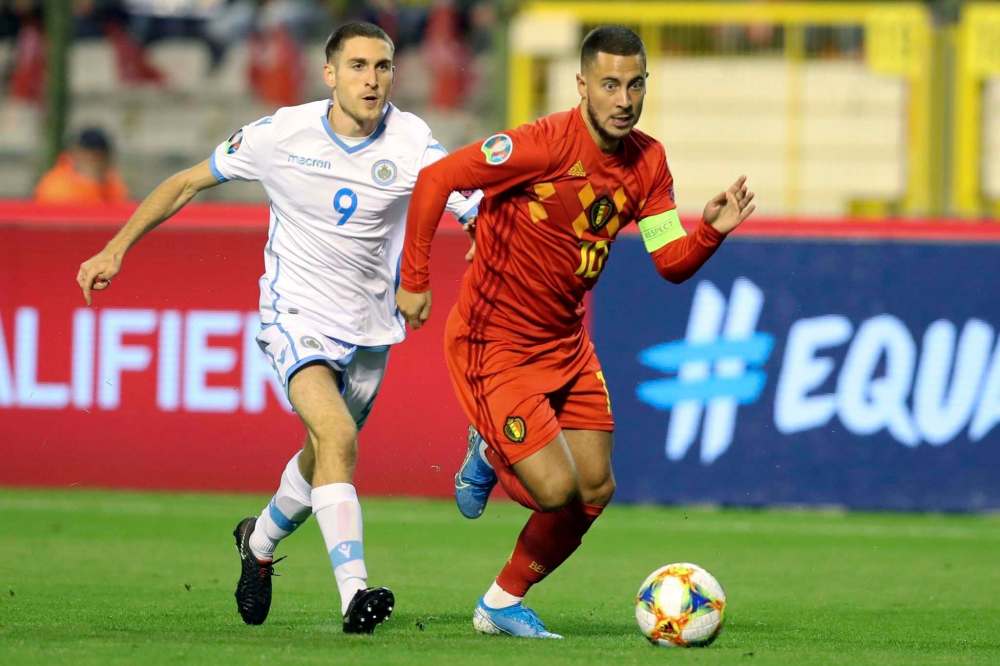
In a nod to time paused, the tournament, which gets underway today in Rome (all matches on TSN), will still be known as EURO 2020. It’s like the last year never happened — or is still with us. That’s the trick, anyway. The thing is, this is very much the Euros of 2021. From scheduling to participation and protocols, it is a competition of the moment, as unsteady on its feet as a convalescent learning to walk again.
Dublin, for one, was removed as one of the pan-European competition’s initial host cities. The Irish capital couldn’t guarantee the attendance of fans, and UEFA required a commitment of at least 25 per cent capacity. Similarly, Bilbao was changed to Seville as Andalusia acquiesced to the quota.
Stadium capacities, not surprisingly, have had less to do with safety than with politics.
Germany, signalling caution, will have the lowest percentage of supporters at its ground in Munich. Amsterdam, Bucharest, Copenhagen, Glasgow, London, Rome and Seville will fill between 25 per cent and 45 per cent of their seats. Russia and Azerbaijan, where COVID responses have been more cavalier, have promised half-filled arenas in Saint Petersburg and Baku, and EU renegade Hungary, led by pandemic-denier Viktor Orban, has pledged sellouts in Budapest.
Then there are the players, who have faced an array of challenges en route to Euro 2020.
With the 2019-20 club season having ended less than 10 months ago at a makeshift Champions League playoff in Lisbon, a compressed campaign that only just concluded meant that wear and tear were always going to be more significant factors than they would have been under more normal circumstances.
Spain captain Sergio Ramos, for example, was omitted from La Roja, having played a single match since March. Belgium playmaker Eden Hazard, who struggles for fitness at the best of times, made his fewest league appearances since his debut season at Lille. Liverpool fullback Trent Alexander-Arnold sustained a quadriceps tear in England training, and RB Leipzig midfielder Dominik Szoboszlai couldn’t recover from a groin injury in time to represent Hungary. There’s also Zlatan Ibrahimovic, Donny van de Beek, Marco Reus and Marc-Andre ter Stegen — the list goes on.
Of course, COVID-19 has also necessitated some absences.
Despite returning a positive test, Netherlands goalkeeper Jasper Cillessen was pledged a place in Frank de Boer’s squad, only for the manager to renege a few days later. A furious Cillessen proceeded to vent his frustration to the Dutch press and hinted at additional problems troubling the national team. Trust Oranje to generate drama before a major tournament. At least some things never change.
Midfielder Sergio Busquets tested positive, too, and the advanced date of his result necessitated some unprecedented measures by Spain.
With the entire squad forced into isolation, it was the under-21 side that turned out for what was to be the final tuneup game against Lithuania. Manager Luis Enrique also drew up an alternative selection, preparing for a scenario in which the virus ruled out more of his players ahead of the country’s June 14 opener against Sweden.
Notably, one outfit that has been mostly untroubled ahead of EURO 2020 is the reigning champions.
First congregating for a training camp in Oeiras before departing for their tournament base in Budapest, Portugal have been putting the finishing touches on a squad well-situated to defend the trophy. Indeed, they should perhaps be favoured to win it again.
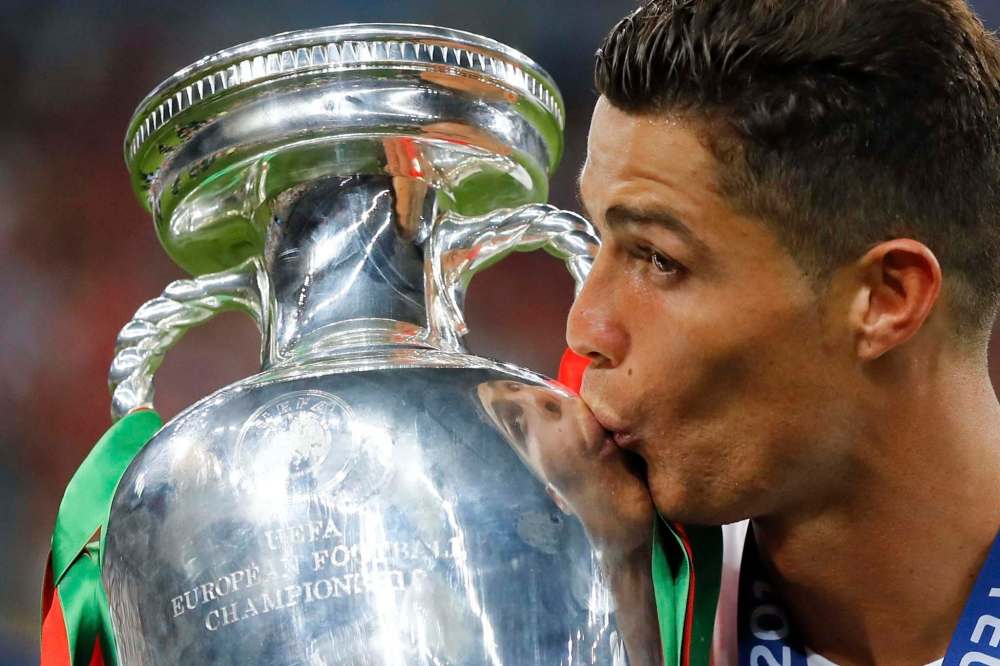
While Cristiano Ronaldo, Pepe, Raphael Guerreiro and Rui Patricio remain from the side that beat France in the 2016 Final, manager Fernando Santos has had the luxury of incorporating the likes of Ruben Dias, Bruno Fernandes, Ruben Neves and Joao Felix into his setup. There might not be a team at the Euros as improved as A Selecao, and that’s a scary proposition — even in a Group of Death that also includes France and Germany.
Santos, for his part, expects to repeat.
“The goal is to be European champions,” he told TV broadcaster RTP. “Since I became Portugal manager my thinking is that we go into every tournament to win it. I’m taking a suitcase for one month, and tobacco, too.”
Portugal’s most recent triumph was the 2019 Nations League — the last European finals before the world stopped.
They might be the only ones hoping time doesn’t restart just yet, for a few weeks anyway.
jerradpeters@gmail.comTwitter @JerradPeters
GROUP A: Italy, Switzerland, Turkey, Wales
The favourite: World Cup winners twice since their only European championship in 1968, Italy were a pleasant surprise at EURO 2016 but then failed to qualify for Russia two years later. Under manager Roberto Mancini the Azzurri are once again a continental contender, as they signalled with a perfect qualification campaign in which they outscored their section’s opponents, including Finland and Bosnia and Herzegovina, by a combined 37-4.

The star: Tenacious midfielders are part the Azzurri’s DNA, and Marco Verratti will be in an especially bad mood after a disappointing season at Paris Saint-Germain. Still, he averaged 2.5 tackles and passed at nearly 92 per cent last term, and when in control of his temper is one of the premiere midfielders in Europe.
The surprise: At 35 years of age, much-travelled Turkey striker Burak Yilmaz transferred to Lille and scored 16 Ligue 1 goals to lead Les Dogues to the 2020-21 French title. Just to prove he could still do it for his country as well, he notched a hat trick against The Netherlands in a March World Cup qualifier. A successful Euros would cap what has been one of European football’s more recent feel-good stories.
The key match: This promises to be a tight group, which means head-to-head and goal-difference will likely come into play. With that in mind, the June 20 clash between Switzerland and Turkey in Baku is certain to have serious ramifications for places one through three. Switzerland, don’t forget, were UEFA Nations League semifinalists in 2019 and hammered Lichtenstein 7-0 in a pre-tournament friendly.
The venues: Baku (capacity 34,350); Rome (capacity of at least 17,659)
The prediction: Switzerland (1st) and Italy (2nd) advance.
GROUP B: Belgium, Denmark, Finland, Russia
The favourite: Belgium came ever so close to contesting a first ever World Cup Final in 2018, only to lose a nail-biting semifinal to France on a Samuel Umtiti header. But after being dumped out at the quarterfinal stage by Wales at the previous Euros, the final-four appearance represented progress, which means the next step for the world No. 1 should be this summer’s Wembley showpiece. That said, there are some questions for Les Diables Rouges to answer along the way. Can Eden Hazard, who had another dreadful season at Real Madrid, somehow elevate his game for his country? Is holding midfielder Axel Witsel going to be match fit? Will injured playmaker Kevin De Bruyne, who will miss the opener against Russia in St. Petersburg, be back to his best for the knockout rounds? If the answer to even two of those queries is “yes,” Belgium should be just fine.
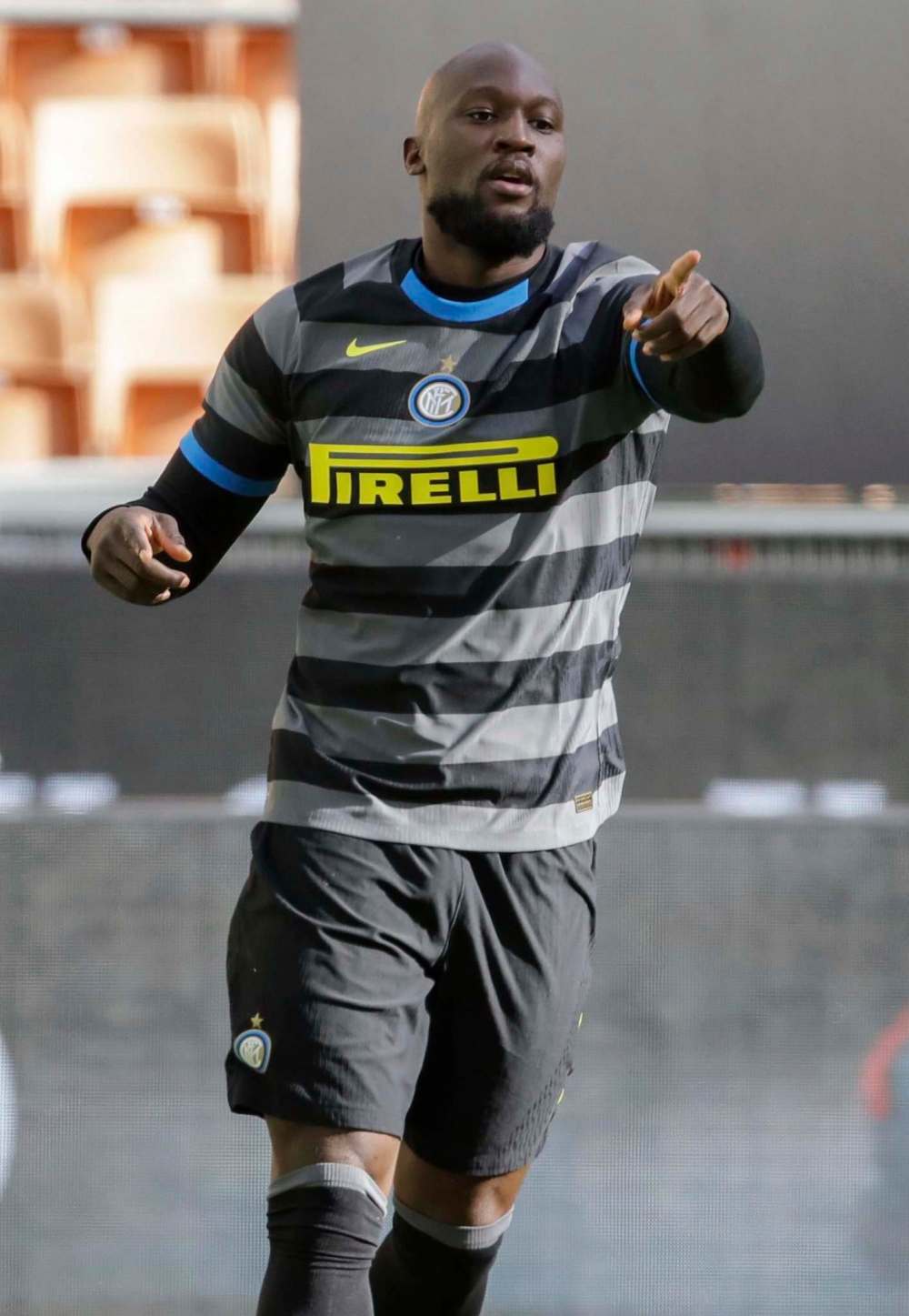
The star: Inter Milan striker Romelu Lukaku scored 24 goals and was named Serie A MVP as the Nerazzurri won the Scudetto for the first time since 2010. The 28-year-old, who has tallied 59 times for Belgium, will centre a forward line that includes Eden Hazard and one of Yannick Ferreira-Carrasco, Dries Mertens and Jeremy Doku.
The surprise: Andreas Skov Olsen only made his Denmark debut in September but has since scored three goals in six matches for his country. Manager Kasper Hjulmand gave the Bologna winger a June start against Germany — a 1-1 draw.
The key match: Russia will face Denmark in Copenhagen on the final matchday in a showdown that will likely determine the runners-up in Group B.
The venues: Baku (capacity of at least 11,236); St. Petersburg (capacity 34,067)
The prediction: Belgium (1st) Denmark (2nd) and Russia (3rd) advance.
GROUP C: Austria, Netherlands, North Macedonia, Ukraine
The favourite: Trust Netherlands to get embroiled in pre-competition controversy. Having tested positive for COVID-19, first-choice goalkeeper Jasper Cillessen was nevertheless promised a spot in Frank de Boer’s selection (he had to return two positive tests), only for the manager to renege on the agreement in early June. In an interview with De Telegraaf, Cillessen railed against De Boer and hinted that there were other issues troubling the squad, although he wouldn’t go into details. The Netherlands, European champions in 1988, will also be without defender and captain Virgil van Dijk, but a relatively weak group means the core of Matthijs de Ligt, Frenkie de Jong, Georginio Wijnaldum and Memphis Depay should book its place in the round of 16 without much difficulty.
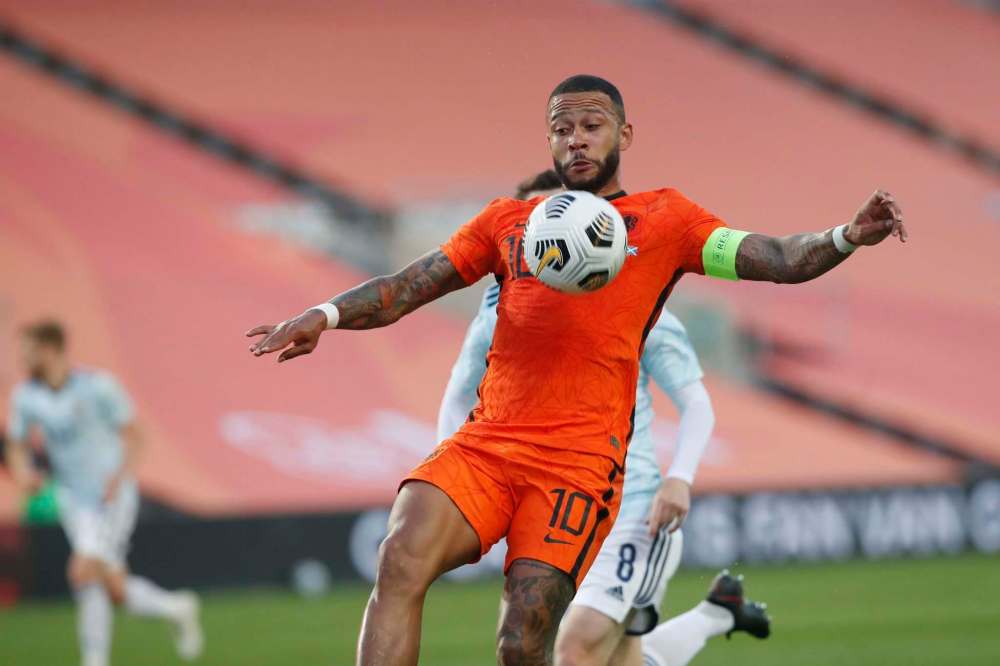
The star: David Alaba recently joined Real Madrid after winning 10 Bundesliga titles and two Champions Leagues with Bayern Munich. Fluent in several positions, the 28-year-old will play in the centre of the park for Austria, who, with the likes of Konrad Laimer and Marcel Sabitzer, will be fielding their strongest team since the early 1980s.
The surprise: Since the break-up of the former Yugoslavia, North Macedonia haven’t contested a major international tournament — until now. Genoa’s Goran Pandev, Napoli’s Elif Elmas and Leeds’ Ezgjan Alioski are familiar names, and both Pandev and Elmas scored in a recent World Cup qualification victory away to Germany.
The key match: The Netherlands need a good start. The tenor of their Euros will be set on June 13 against Ukraine in Amsterdam.
The venues: Amsterdam (capacity of at least 12,000); Bucharest (capacity of at least 13,900)
The prediction: Netherlands (1st) and Austria (2nd) advance.
GROUP D: Croatia, Czech Republic, England, Scotland
The favourite: “It’s coming home!” was the rallying cry, and trending hashtag, of England fans during the 2018 World Cup, in which their team exceeded expectations en route to the semi-finals. Three years on, the Three Lions have come home — literally — as their entire group stage schedule will be played at London’s Wembley Stadium. It’s unquestionably an advantage, and one to be enjoyed by eight other teams at EURO 2020 — an unbalanced quirk of a tournament without a single host country. To make the most of it, manager Gareth Southgate will have to design an XI that didn’t play together in early-June friendlies against Austria and Romania, what with the Chelsea and Manchester City players getting extra time off after the Champions League Final and both Harry Maguire and Jordan Henderson included despite being injured.
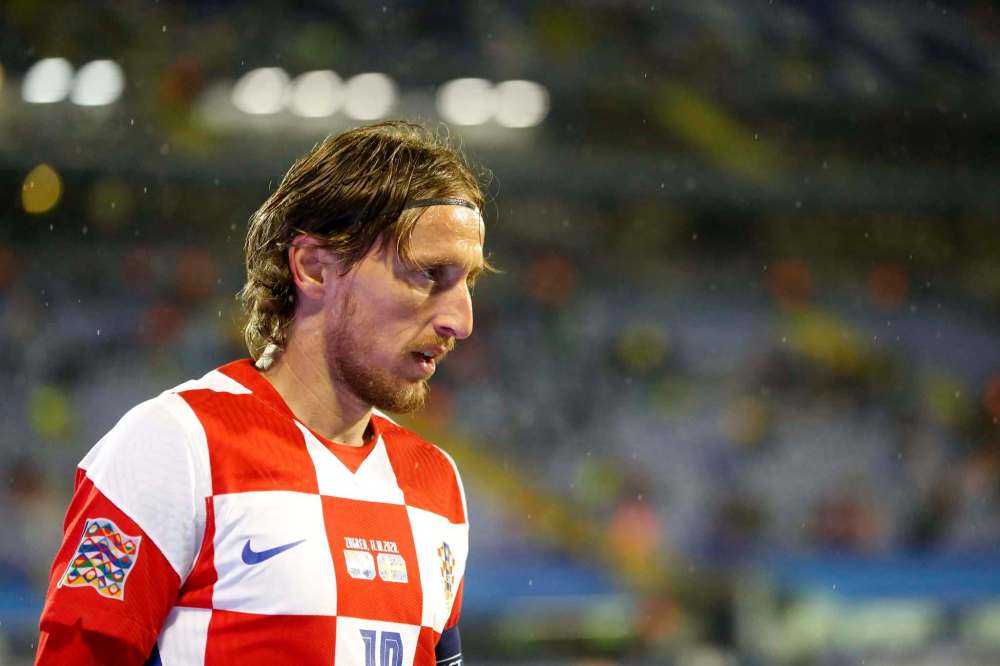
The star: Luka Modric won the Ballon d’Or after leading Croatia to the 2018 World Cup Final. Last season, however, an underwhelming campaign for Real Madrid seemed to show all of his 35 years, but if he can delay further creaks and groans for at least a month he might just be able to take his country on another extended run at a major competition.
The surprise: Josip Brekalo can play across the forward line and scored his first international goal in September against France. Arsenal, Liverpool and Bayern Munich are thought to be keen on signing the 22-year-old Croatian, who currently plays for Wolfsburg.
The key match: A third-place finisher is likely to advance from this bracket to the Round of 16, which makes the January 14 encounter between Scotland and Czech Republic especially important.
The venues: Hampden Park (capacity of at least 12,967); Rome (capacity 22,500)
The prediction: England (1st), Czech Republic (2nd) and Croatia (3rd) advance.
GROUP E: Poland, Slovakia, Spain, Sweden
The favourite: Spain’s Euro 2020 preparations were thrown into chaos eight days before their opening match against Sweden when midfielder Sergio Busquets returned a positive COVID-19 test. The rest of manager Luis Enrique’s 24-man squad (Spain are the only side to not have selected the maximum 26 players) immediately went into isolation, and national team officials negotiated with the country’s health ministry to have the entire group vaccinated. As a further precaution, Spain’s under-21s took on Lithuania in what was supposed to be La Roja’s final tune-up match, and on June 7 Enrique began assembling a parallel team to train in a separate bubble. Busquets had played as part of a three-man midfield alongside Thiago Alcantara and Fabian Ruiz in a pre-tournament friendly against Portugal. Ferran Torres, Alvaro Morata and Pablo Sarabia started up top against the reigning European champions in Madrid.
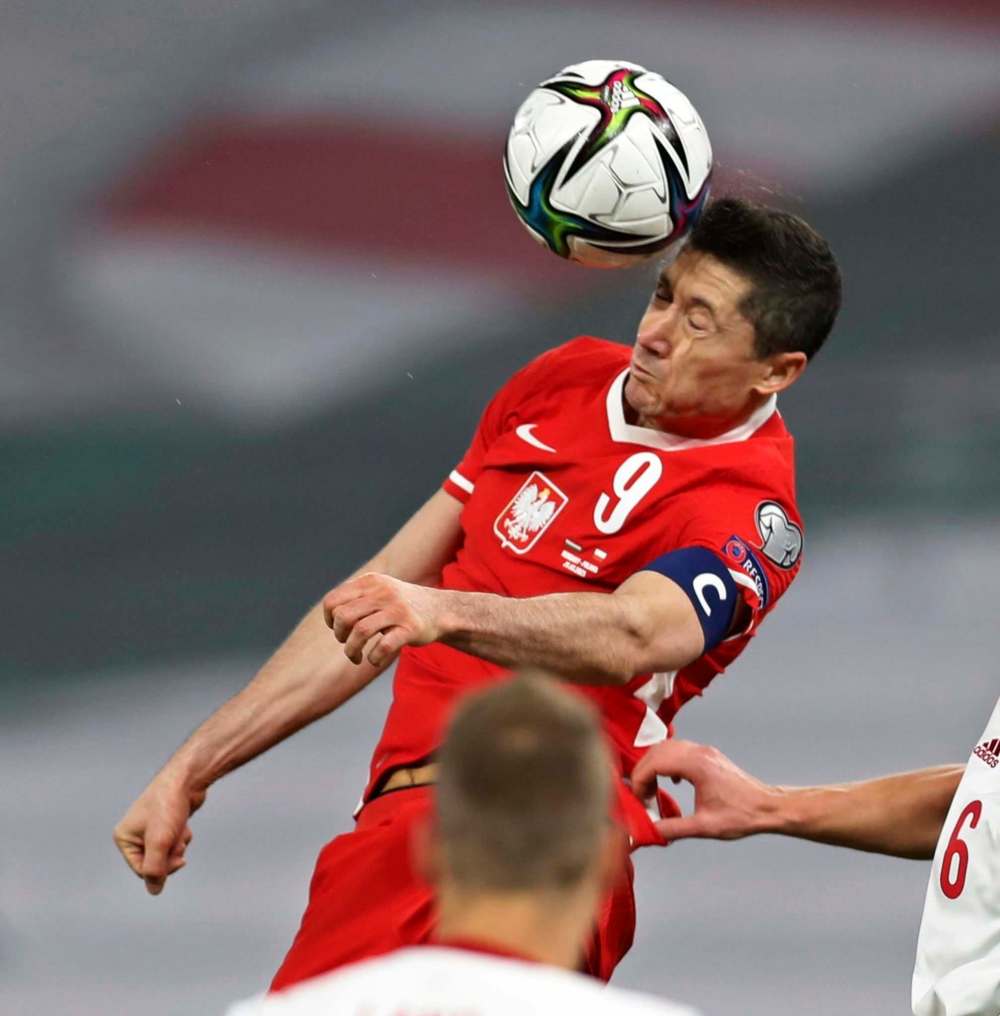
The star: Robert Lewandowski has played more and scored more for Poland than any player in the country’s history. Last season the 32-year-old striker tallied 48 times in 40 appearances for Bayern Munich, and he enters Euro 2020 as the best and most in-form striker on the continent.
The surprise: Slovakia beat both the Republic of Ireland and Northern Ireland in qualification play-offs and have yet to lose in 2021. In March they won 2-1 at home to Russia. Their core of goalkeeper Martin Dubravka, Milan Skriniar and Marek Hamsik will keep them viable in Group E.
The key match: Spain’s XI for their opener against Sweden remains a mystery. If a make-shift squad drops early points it will completely change the make-up of a suddenly-competitive bracket.
The venues: Saint Petersburg (capacity 34,067); Seville (capacity of at least 15,000)
The prediction: Spain (1st) and Slovakia (2nd) advance.
GROUP F: France, Germany, Hungary, Portugal
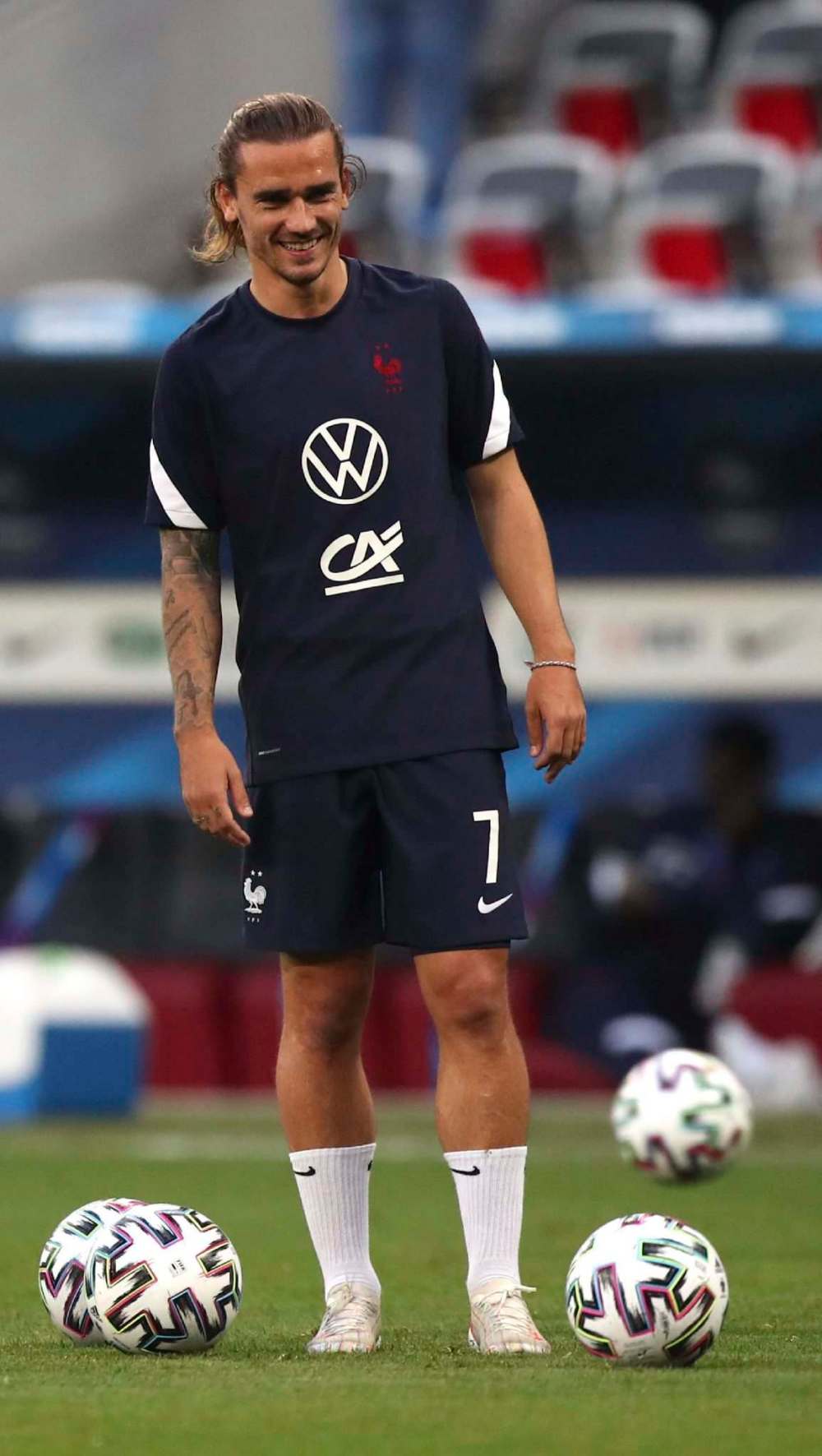
The favourite: Had France not been drawn into this ultimate Group of Death, it’s questionable whether Karim Benzema would have been selected by manager Didier Deschamps for the first time since 2015. Initially omitted for blackmailing former international teammate Mathieu Valbuena over a sex tape, in March 2020 he targeted derogatory remarks at France forward Olivier Giroud, and in October he was found to have liked a violent Instagram post aimed at French president Emmanuel Macron. Another president, Francois Hollande, has previously stated that Benzema is “not an example of morality.” The 33-year-old has, however, scored 27 goals for Les Bleus, and the forward line including each of him, Antoine Griezmann and Kylian Mbappe immediately becomes the very best in the world.
The star: Bruno Fernandes has scored 40 goals in a season-and-a-half at Manchester United but has so far notched only a pair for Portugal. He’ll look to build on that number at Euro 2020, where he’ll be just one of a number of electrifying playmakers for A Selecao.
The surprise: Can Thomas Muller, Germany’s most decorated footballer, actually be labelled a “surprise?” Absolutely, what with his two-year exile from Die Mannschaft having ended just in time for EURO 2020. The 31-year-old is the type of player who tends to raise his game at international level, and outgoing manager Joachim Low will need his influence in this tournament of pragmatism.
The key match: Portugal-Germany on June 19 in Munich will likely settle second and third place in the section.
The venues: Budapest (capacity 67,215); Munich (capacity 14,500)
The prediction: France (1st), Portugal (2nd) and Germany (3rd) advance.








